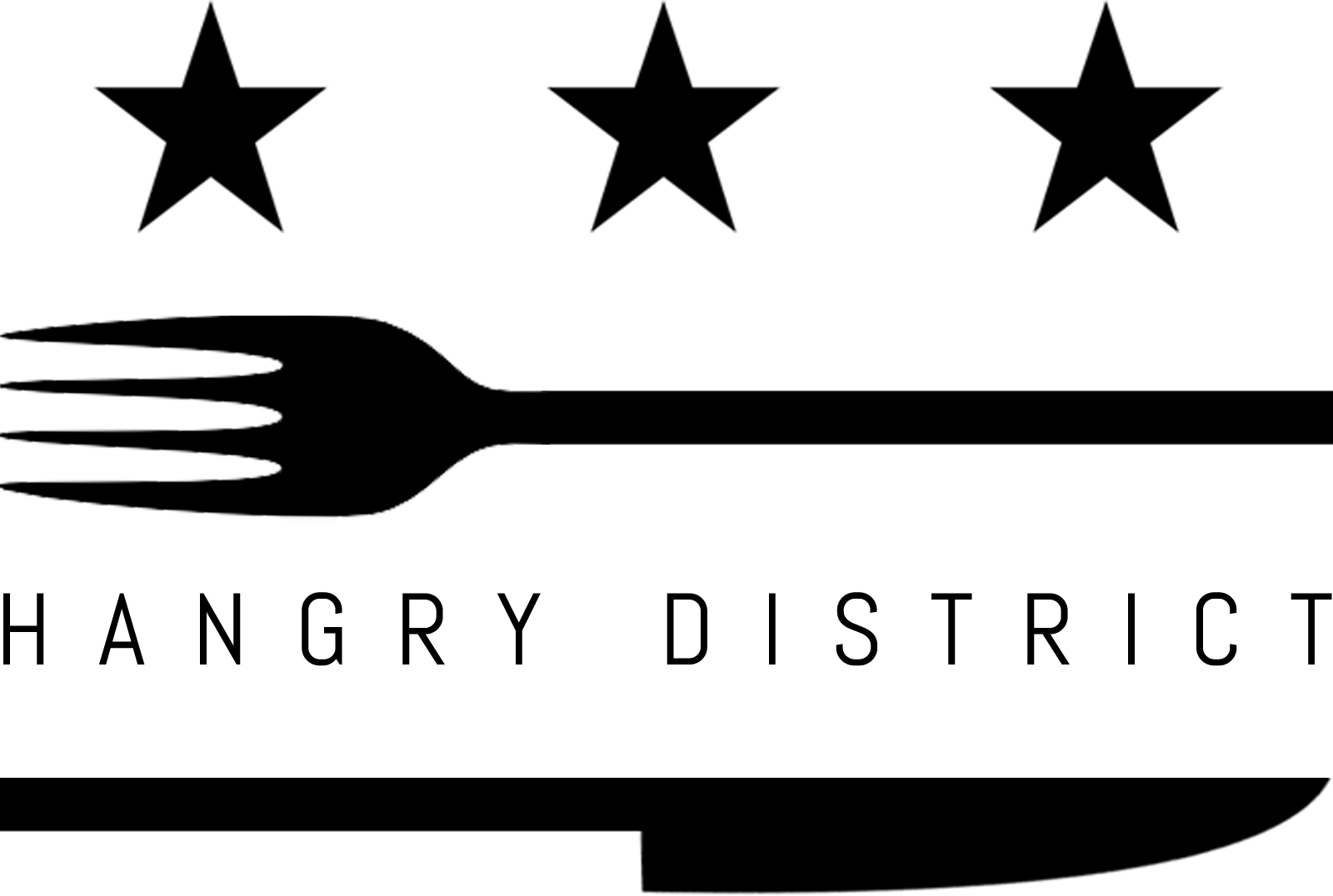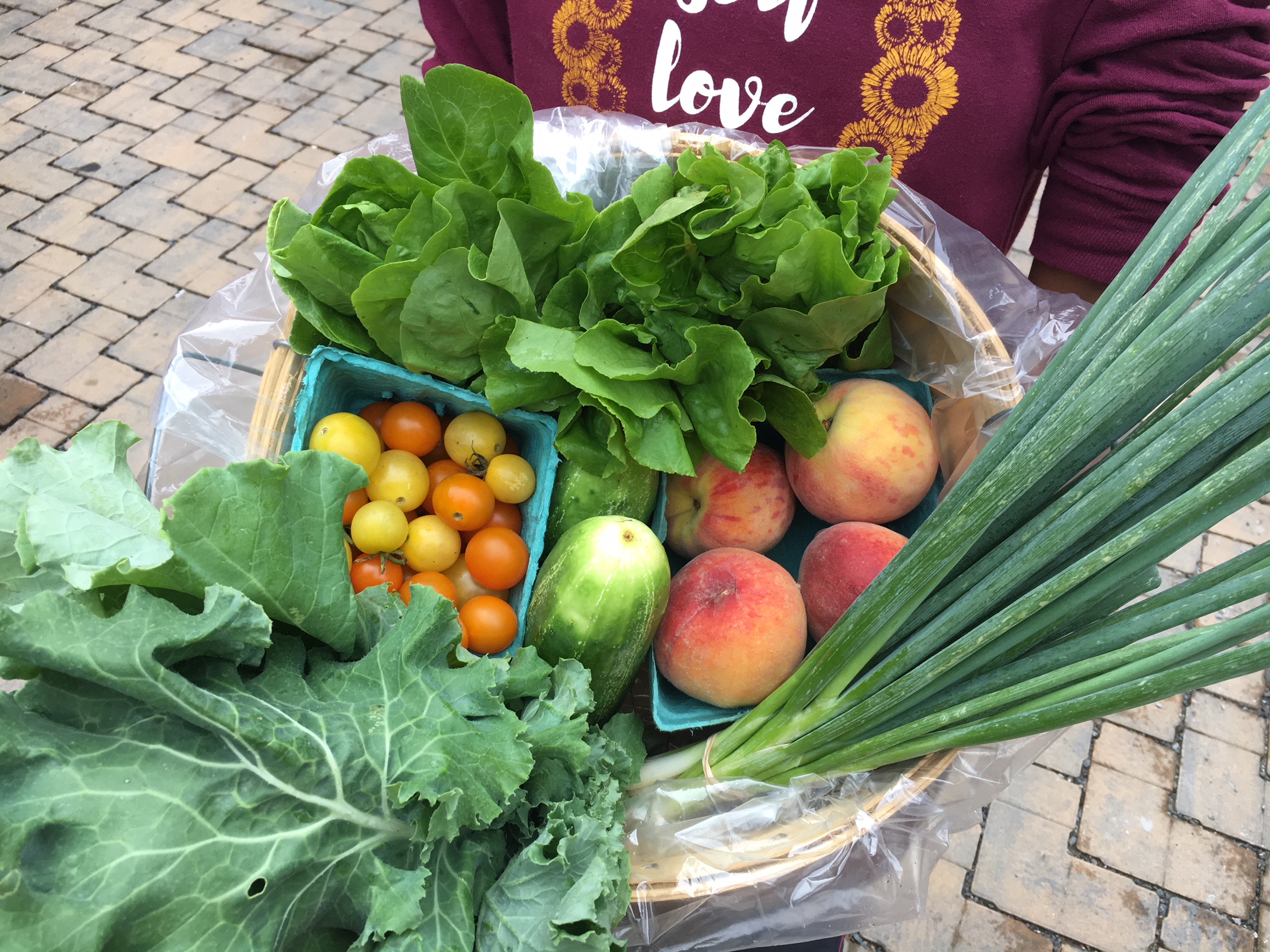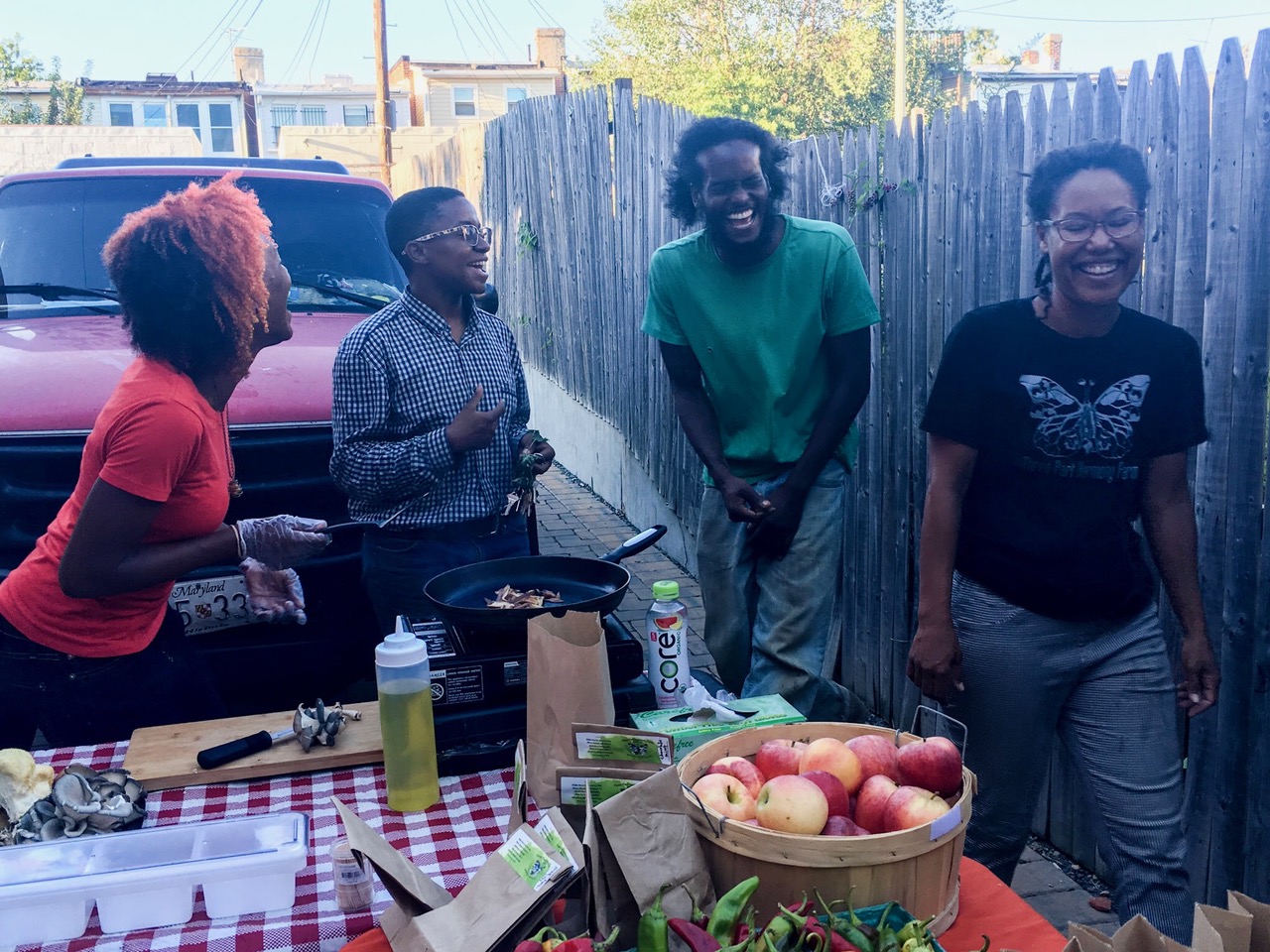Gail Taylor: Urban Farming Pioneer
Farms in the city: Three Part Harmony Farm OWNER PAVES THE WAY FOR COMMERCIAL GROWTH IN DC
Gail Taylor started the trend for urban farming in DC.
The Meat & Potatoes
Name
Gail Taylor
Age
39
Hometown
Rock Island, IL
Hangry Cure
Ugh so embarrassing - Potato Chips
Hidden Talent
Belting at the top of my lungs with the radio on road trips. Any pop or R&B from the late 80s or 90s… I know all of the words.
I met Gail Taylor, owner of Three Part Harmony Farm, years ago during my part-time job with Future Harvest CASA, a sustainable agriculture organization in the Chesapeake region. Her infectious smile and positive energy drew me to her. I soon learned about her passion to start an urban vegetable farm, and it is truly amazing to see how she did just that, and how incredible and beneficial it has become to the District of Columbia.
Through the continued help from volunteers and a community eager to support an urban farm, Three Part Harmony is highly sought after in the CSA (Community Supported Agriculture) and Farmer's Market communities. Imagine getting all of your produce from a farmer whose zip-code is the same as yours - it seriously makes my heart swell. Not only do you know exactly where your food is coming from, but you're also reducing your carbon footprint as a DC resident and supporting Gail, who paved the way for other farms/farmers to grow commercially in DC.
As stated on her website:
Three Part Harmony Farm is a project that was born out of a community-led visioning process that began in 2011. The desire to establish a production focused vegetable farm in DC to grow food for family, friends and the surrounding community combined with Taylor’s background in activism and policy advocacy led to a three-year campaign, “I Want DC to Grow.” This resulted in the passage of the DC Food Security Act of 2014, also known as DCs Farm Bill which sets the stage for 3PH and others to grow commercially in the district.
Three Part Harmony Farm exists to grow food for people, but it also exists in part to challenge our assumptions on how urban farms should look. It intentionally seeks to create a viable and just local food economy while at the same time dismantling racism and the ever present, entrenched forms of oppression in that same food system. How sustainable is sustainable agriculture when it comes to the litmus test of economic and community needs, not just in terms of the environment?
I catch up with gail every week at my csa share pick-up, where I highly encourage you to meet her yourself by signing up here! Here's what she had to say....
Tell me a little bit about Three Part Harmony Farm:
Three Part Harmony Farm began in 2012 with a vision that we can grow food for ourselves in the city. The ½ acre produces quite a lot, intensively, and it is certainly a lot of work! Two part-time seasonal staff – Cristina and Jon- and about a dozen volunteers make it possible. The farm family is rich in so many gifts from photography to graphic design to bike repair and massage! The families that host the CSA porch pick-ups, the teacher/parent group at Lee Montessori, and the Capoeira family at the Emergence Community Arts Collective are some of the many hands that hold us up. If it takes a village to raise a baby, it takes a community to grow a farm.
Why did you get into farming?
I was interested in learning more about where my food comes from. I became a vegetarian as a teenager, so I was thinking a lot about what I put in my body. I also had some concerns about the food system, especially noticing that we rely heavily on trucks and roads for our food security and that just seemed pretty fragile to me. I wanted to be a more informed consumer for sure, and to have a deeper understanding of what goes into producing food that is good for people and for the environment. I think there was part of me that hoped I could grow vegetables for myself in a pinch if it ever came to that, but I didn’t start out thinking of it as a potential career.
What did you do before you were a farmer?
I studied U.S. Foreign Policy in Latin America, so I moved to DC to work on human rights and social justice issues related mainly to militarization in Latin America.
Why are urban farms so important?
Until recently, farms in the city were an important part of every day life and I think they should be again. We live in the city, so our food should be with us, in the city. Farms in the city have the same environmental, social, and spiritual benefits as those in rural areas. Having green space completely changes your disposition and outlook on life. Green space in a city helps absorb big rains, not contribute to flooding issues like all of the pavement does. In addition to being a pollinator-friendly space in the city, we also have a resident fox, a hawk, so many birds and of course too many squirrels. The insects attracted to the farm go beyond monarch butterflies and honeybees; we have a lot of native pollinators as well.
And it’s not just urban farms that are important, urban farmers are also important. I have a special connection to the families that are nourished by our produce because they are my neighbors. When I’m riding around DC on my bike, I see many of them and wave. I think that’s nice, not just for the adults, but for the kids too: they get to see a real life farmer. For the children of DC, a majority minority city, that farmer more closely resembles them than the farmer in their picture books. So they are connecting someone who looks like them with something good for the community.
What do you grow on your farm?
We grow a variety of vegetables – mainly kale, collards, mustard, swiss chard, lettuce, spinach, beets, carrots, radishes, turnips, leeks, spring onions, ginger, cucumbers and beans – plus herbs and flowers. Off-site we have a greenhouse that produces about 3,200 seedlings every year that are planted primarily in gardens in DC.
Has there been something you've attempted to grow in DC that you were surprised thrived so well here? Or something you were just all around excited to plant/grow?
Each year I keep coming back to ginger. I know it’s kind of ridiculous to grow a tropical plant - and this is not a tropical place! But the thing is, everyone thinks they know what fresh ginger looks like until we dig ours up and take it to the market and people are astonished that the outside is creamy pink, not brown. The flavor is not even remotely like the thing you get in the store, so it’s worth it.
Ed. note: It's the BEST ginger I have ever tasted.
Where can we find your products?
We sell most of our produce through a Community Supported Agriculture (CSA) program. It is a multi-farm CSA so I source other vegetables plus fruit, eggs, micro greens, honey, cheese, flowers and herbal products from other farms. There are currently five different pick-up sites on two different days.
Our seedlings can be purchased at Annie’s Ace Hardware in Petworth and Brookland, starting around the end of March.
We sell seedlings, flowers and herbs at the Petworth Farmer’s market on Saturdays in May and June.
And for folks who would rather find our produce in a restaurant, we sell exclusively to Pansaari in Dupont Circle.
Tell me about a typical day on the farm, from breakfast to bedtime.
The most important part of the day is the quiet time! I wake up and drink coffee and read the newspaper. It’s the only time of the day that I’m by myself. In the springtime I have daily chores - it makes me feel like a real farmer. First I have to check the germination chamber on the porch to see if any little babies sprouted over night. Everything gets watered, and the appropriate number of windows and doors might get opened depending on the forecast for the day. Once the chores are done, then I have breakfast.
On non-harvest days I bike 20 minutes to the farm. It would sound romantic to say that I show up and we do something fun like transplant seedlings and set up irrigation. The reality is, we do a lot of hand bed prep and that takes up the vast majority of our work time. Only after hours of loosening up the soil with forks do I then take a walk-behind tiller through to create a smooth seed bed and then, in the last 15 minutes, the actual seeding happens.
What's your favorite thing to make using the products from your farm?
I’m the queen of the one pot meal. Every single CSA share can be laid out on the kitchen counter, washed, chopped, and cooked together in the pot. I find the vegetables fresh from the farm don’t need a ton of seasoning, the vegetables themselves have flavor. So the seasonal one-pot stir-fry or stew with rice is my go-to. I’m terrible at sticking to recipes.
How do you find balance in your life?
Um next question.
No seriously - it’s very difficult. People seem to give me sad puppy eyes when I tell them I have to go to my part-time job because that seems like the last thing a full-time farmer would want. But the yoga studio is my balanced place. At the very least, for those 90 minutes my cell phone is not next to me.
What advice can you give to people who aren't sure what it means to eat local/support local farmers? Or maybe just some knowledge about the difference local food straight from the farm can make in one's life?
Knowing an actual farmer totally changes your perspective. At the grocery store, piles of unblemished, shiny produce gets misted as you walk by. It could be a movie set. How are you supposed to be able to connect that at all to the place where it came from much less understand who makes that possible? Joining a CSA is a commitment for sure. Eating seasonally for a year gives you a front row seat to what we are dealing with. You’ll get regular information about how the unpredictable weather is affecting your dinner. Once when I mentioned that we were in the middle of a mini-drought, more than one person confessed that they hadn’t noticed. I mean - for 28 days in a row you didn’t take your umbrella with you to work right? So that’s why we don’t have carrots this week - we decided to water the salad greens instead. There’s not enough water to do everything at once, all month long. And that’s the kind of deep understanding you get from your farmer. I know it hurts sometimes and you just want to go to the grocery store to get that thing that completes your recipe. But by the end of the experience, I find almost everyone actually has a really hard time going back to the store in December and January and they can’t wait for the season to begin again.
Ed. note: Oh so true!! I have been anticipating the CSA season all winter-long!!
Is there an ingredient or food that you absolutely hate and would never eat?
Oh! Cilantro. I am on the other side of the farm when the crew plants or harvests it. Sometimes I get a whiff of it on their knives - ugh.
If you could have dinner with anyone dead or alive, who would it be?
Harriet Tubman.
Where do you shop for food that isn't from your farm?
I buy staples at a food co-op when I can. I love Glut in Mt. Rainier. You can bring your own clean jars to cut down on the need for plastic bags in the bulk section.
Final Thoughts
How often do you go to the grocery store? Do you have any idea how far that produce is traveling so that you can have access to the convenience of most ingredients year round? That's not the way we should be eating in our region. There is a time for tomatoes in DC and it's not in December, that's for sure. I challenge you all to try and eat seasonally for one season. The best way to start is to buy only what you can find at your local Farmer's Market or sign-up for one season of Gail's CSA. You'll be astonished at how delicious your food tastes, and you'll also come up with some surprising recipes by using only what's available. It's how I came up with my cooking style - MacGuyver Style! I use only what's seasonal and locally available to create delicious meals. And as Gail said, get to know your farmer, they impact your life in a major way. See you at the CSA pick-up!
★★★







